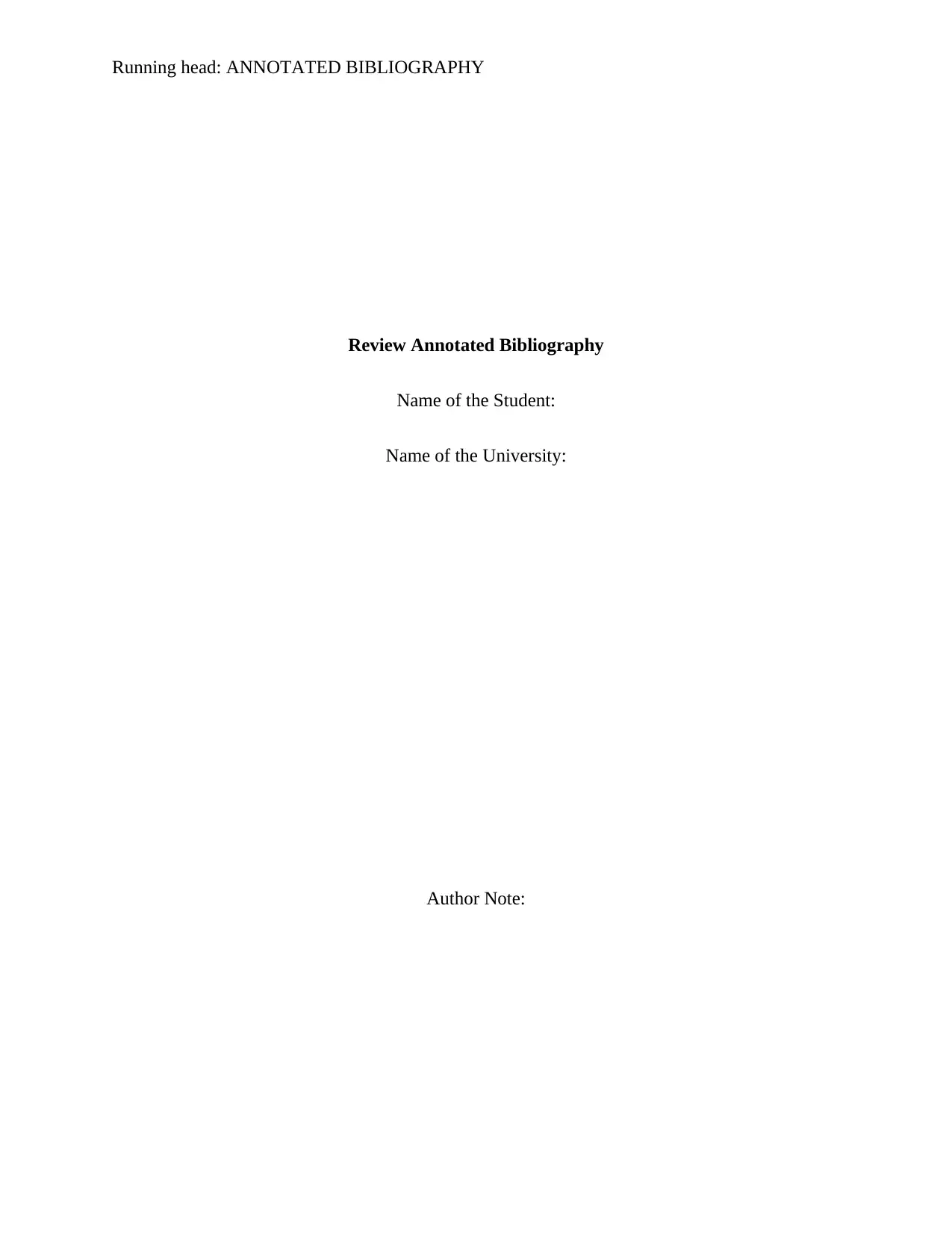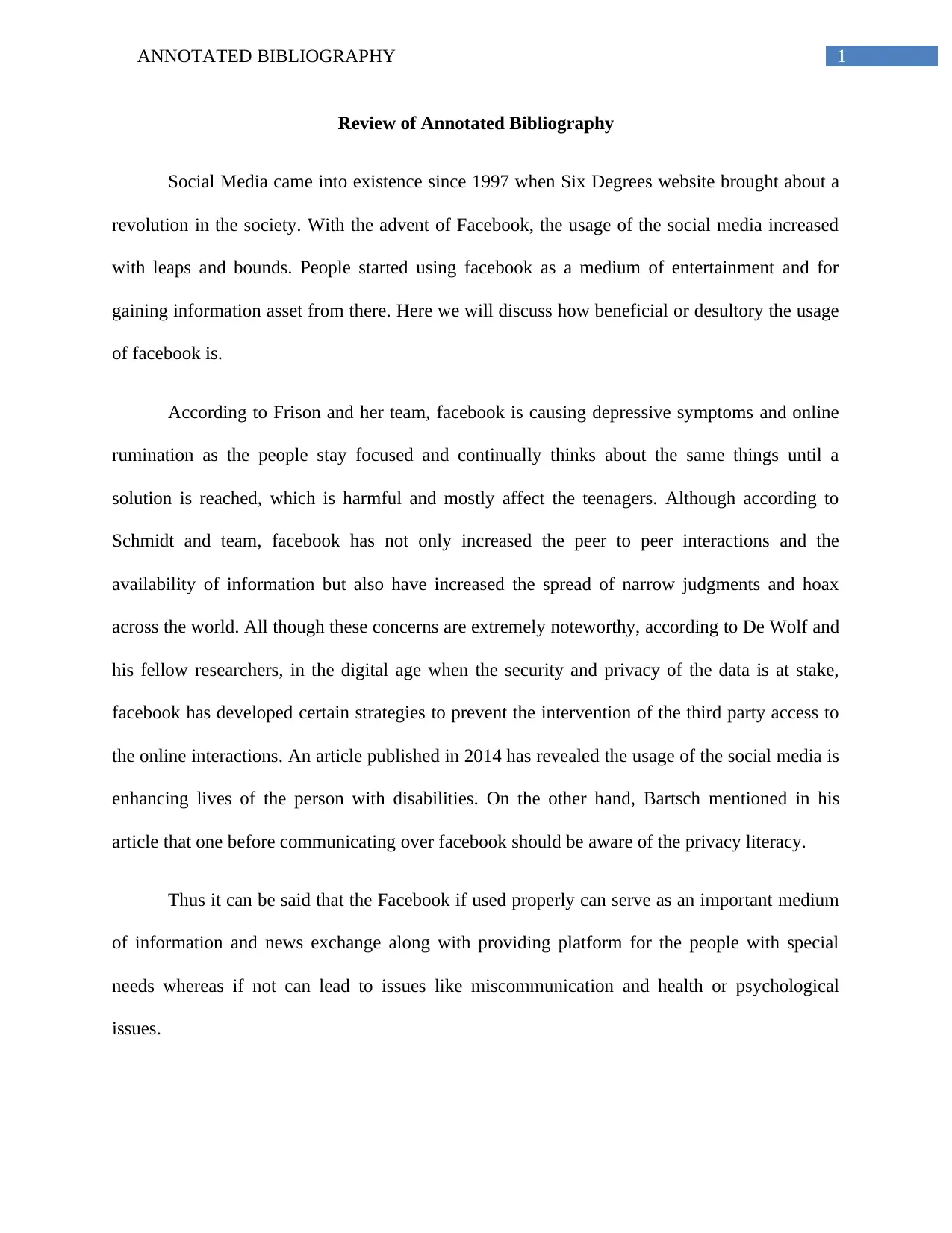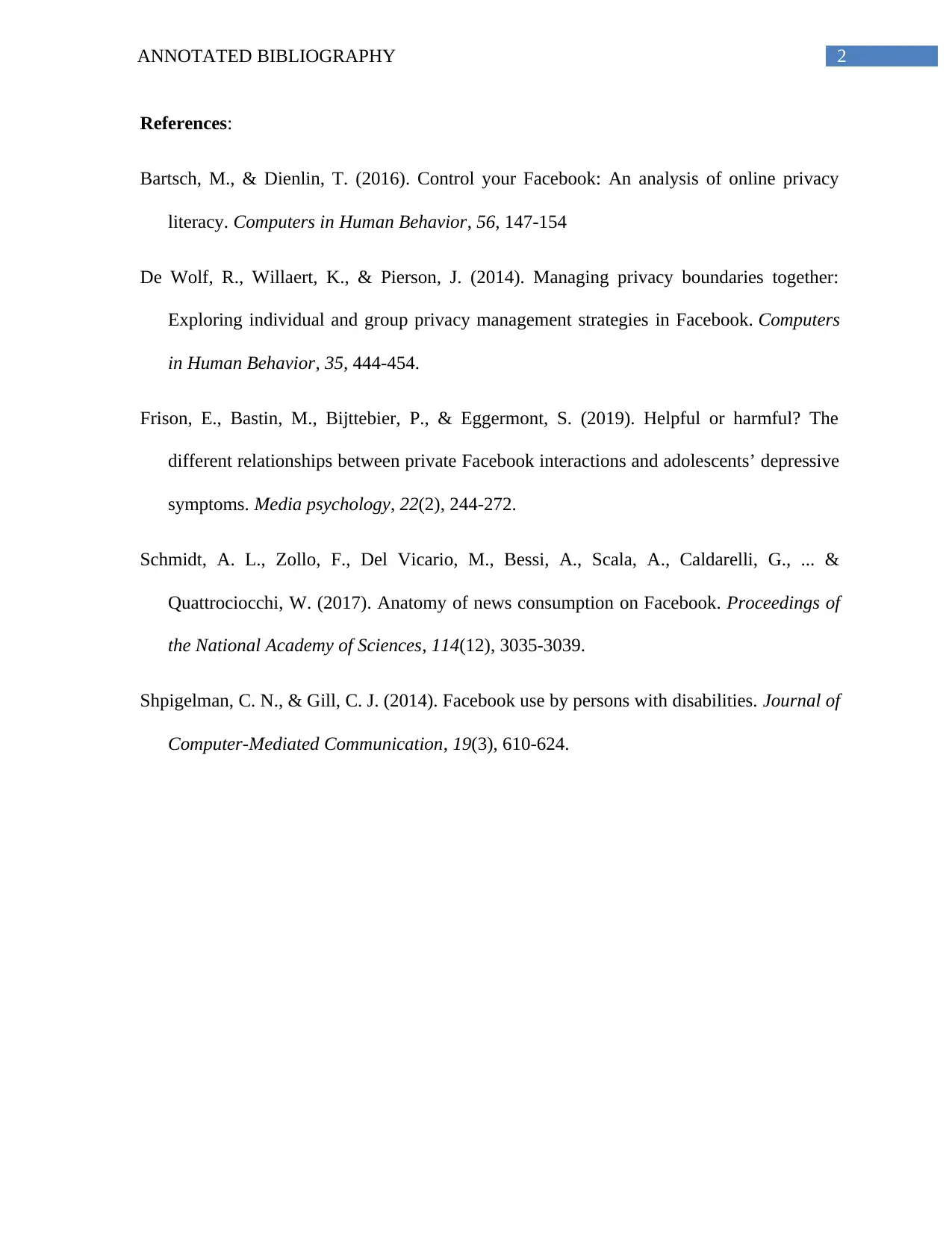University Annotated Bibliography Review: Facebook Usage and Impact
VerifiedAdded on 2022/09/08
|3
|533
|17
Annotated Bibliography
AI Summary
This annotated bibliography reviews several research articles concerning the impact of Facebook usage. The bibliography begins by acknowledging the rise of social media and its subsequent impact on society, specifically highlighting Facebook. It presents a discussion of different perspectives, including the negative effects such as depressive symptoms and the spread of misinformation, as well as positive aspects like increased peer-to-peer interaction and platform development for people with disabilities. Key articles are summarized, contrasting the harmful effects with the beneficial aspects of Facebook, emphasizing privacy and security concerns in the digital age. References to the articles are provided at the end.
1 out of 3





![[object Object]](/_next/static/media/star-bottom.7253800d.svg)